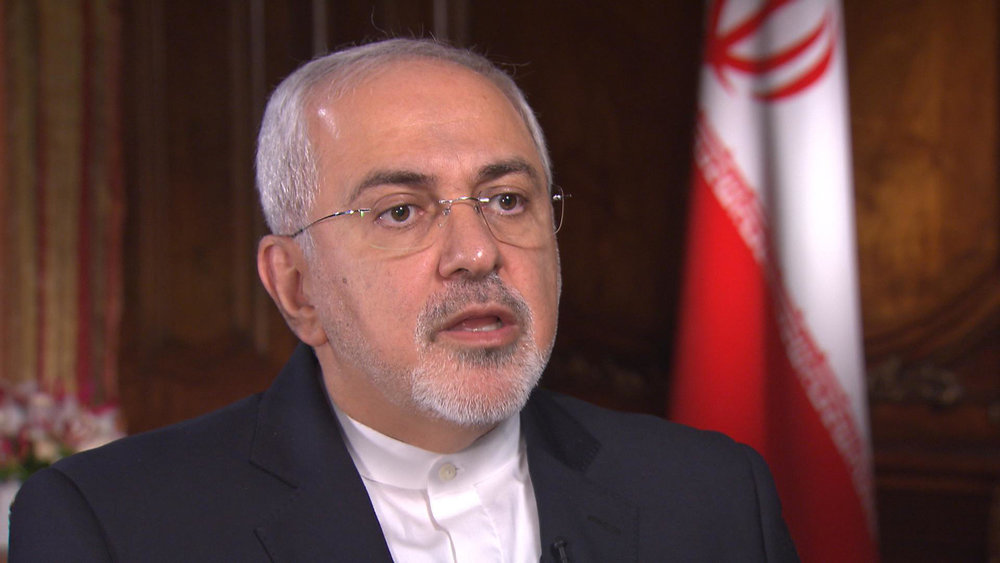EU should not underestimate its capability: Zarif

Iranian Foreign Minister Mohammad Javad Zarif has said that the European Union should not underestimate its capability.
“I want to concentrate on our immediate region, the Persian Gulf. The EU should not underestimate its capability in that area. The EU proved to be a very capable partner in the Iran nuclear negotiations and I believe it can again be a very capable partner in bringing stability to the Persian Gulf region,” he told Korber-Stiftung, a German think-tank, in an interview.
Following is full text of the interview in English version published by ABNA news agency:
Q: Minister Zarif, when thinking about recent developments in German-Iranian relations, the Joint Comprehensive Plan of Action, which you negotiated, is the most prominent component. Germany in particular pinned its hopes for a new start in Iran’s relationship with the West on the deal. Today, it seems as if the agreement’s future mainly depends on a currently ambivalent Washington. Can Germany preserve the deal?
A: I think Germany and the European Union played a leading role in achieving an essential cognitive transformation during the negotiation process. When everybody understood that a zero-sum approach would lead to a negative sum outcome and that we needed to find a solution that serves the interests of all sides, this marked a turning point. Today, Iran is implementing its side of the bargain. However, especially the current US administration is more interested in maintaining sanctions and making sure that Iran derives the least possible benefits, than in implementing its own obligations. This is contrary to the letter and spirit of the agreement. In this situation, Germany can again play an important role by making sure that we return to a more positively oriented approach, and that Iran receives the promised dividends of the deal, which the Iranian people rightly deserve.
Q: What about the broader engagement in the Middle East of both Germany and the EU? Would you agree that the EU has limited capacities to change realities in the region?
A: I want to concentrate on our immediate region, the Persian Gulf. The EU should not underestimate its capability in that area. The EU proved to be a very capable partner in the Iran nuclear negotiations and I believe it can again be a very capable partner in bringing stability to the Persian Gulf region.
Q: In what way?
A: I think the EU should play a much more assertive role, because its philosophy of positive sum outcomes, win-win situations, and dialogue can be an important ingredient for conflict resolution in the region. The EU should promote dialogue and understanding, since it does not have the baggage that some other players in that region do. Another important role the EU could play is to send the right signals to various players in the region, who may be receiving very wrong signals from other global players during the recent dispute between Arab countries of the Persian Gulf.
Q: Let us look beyond the (Persian) Gulf, to Afghanistan, your big neighbor. Despite a long history of international engagement, instability is persistent and both Germany and Iran continue receiving large numbers of Afghan refugees. Many Germans no longer support the Bundeswehr’s engagement within the NATO mission. How do you view the future of international engagement in Afghanistan?
A: Well, we are also not particularly in favor of NATO engagement, but we are certainly interested to see the Europeans continue to engage in Afghanistan. We started this project together in Bonn when we helped the Afghans establish a transitional government after the Taliban rule. Today, after 16 years, the government is still working and the electoral process is continuing, so this process has actually been more successful than many people thought. Still, it is important to make sure that Afghanistan remains a viable state. Afghanistan’s economy has to transform into a formal and prosperous economy, where the country can use its geographic location and its human and natural resources in order to offer the Afghan people a different livelihood than the one based on drugs, terrorism, warlord structures, and human trafficking. Achieving an economic transformation in Afghanistan is also the most effective way to address the issue of refugees. People need the opportunity to go back to their homes and find alternatives to criminal activities.
Q: What can Germany and Iran do to achieve this economic transformation?
A: I certainly think that Iran and Germany could work together on Afghanistan, and I already discussed this with German CEOs. One possibility would be to develop transportation from Afghanistan to the Persian Gulf or to the Sea of Oman, and thereby allow the Afghans to develop their mines. We could also engage in joint ventures in order to establish manufacturing inside Afghanistan. For instance, Iran could process Afghan iron ore into steel and export that for the Afghans. Iran possesses advanced engineering and construction capabilities, and can deploy them in Afghanistan at a fraction of other actors’ costs. Therefore, we have a comparative advantage.
Q: A final question regarding Syria. What do you expect from Germany and the EU once the war is over?
A: Reconstruction. Syrians should receive the message that there will be peace dividends, regardless of how that peace is formed, and as long as it is an inclusive peace that all Syrians are happy with. Syrians should know that the EU will be there to help them reconstruct their country with no strings attached. The only string should be peace.
Leave a Comment